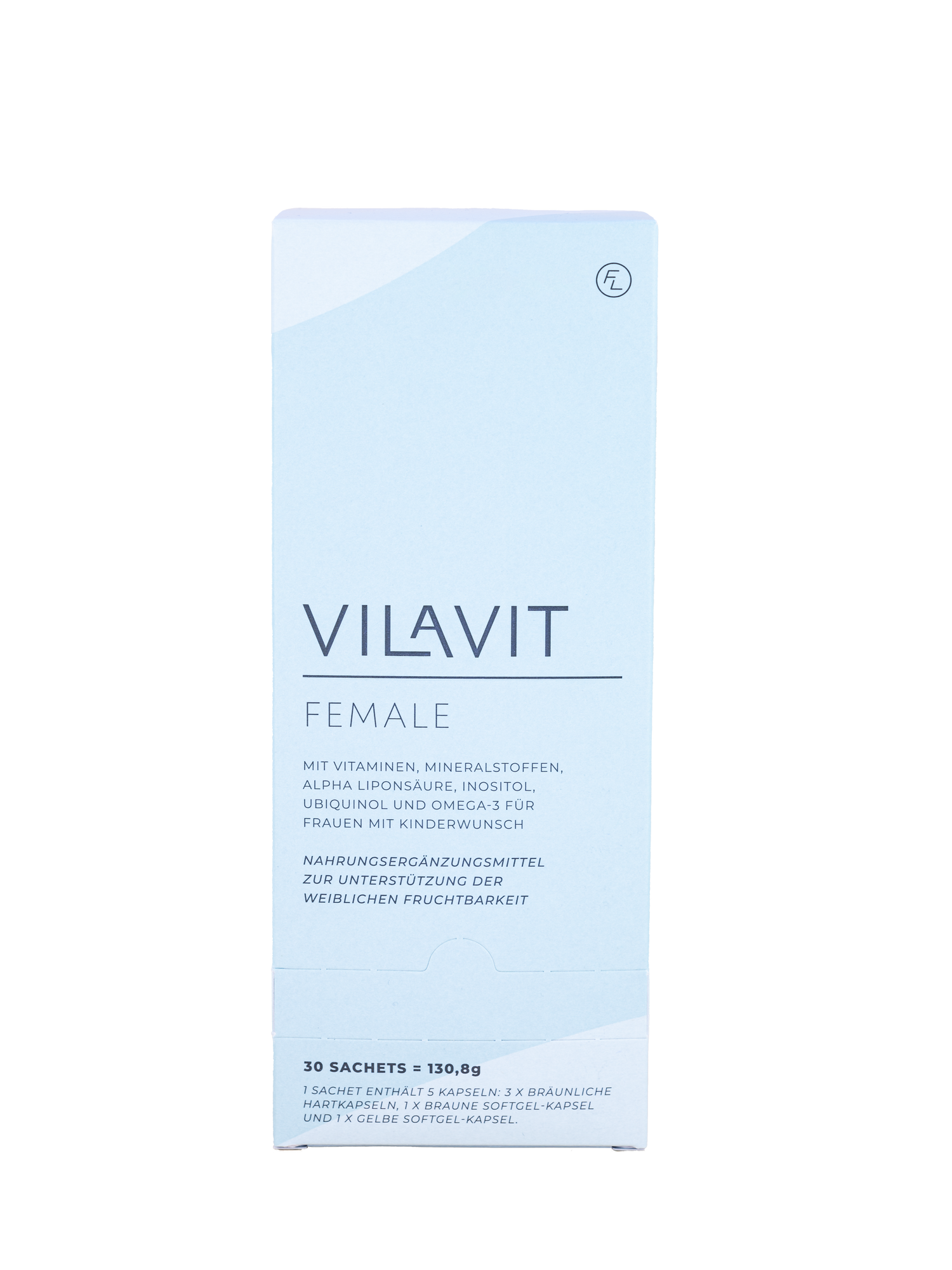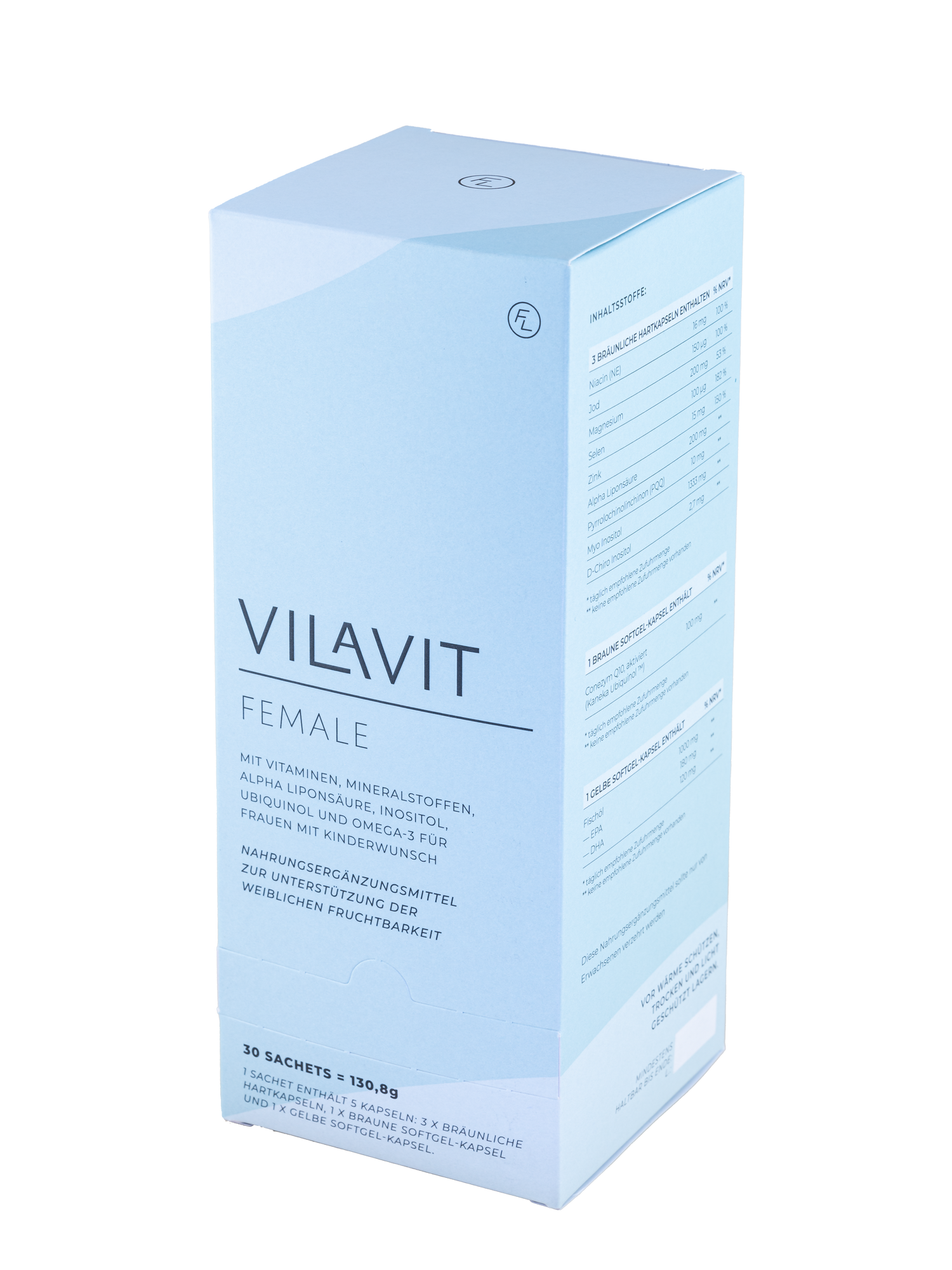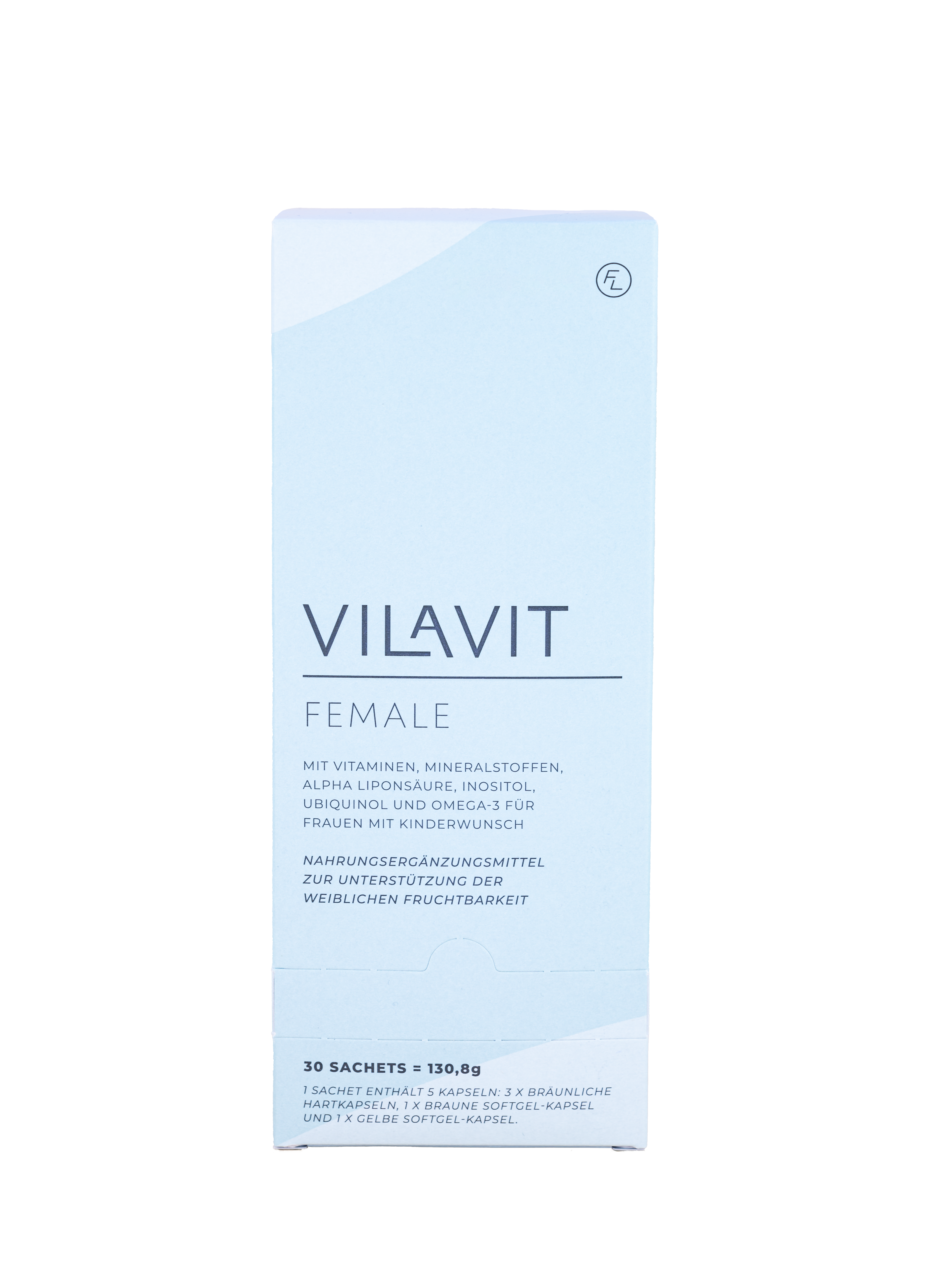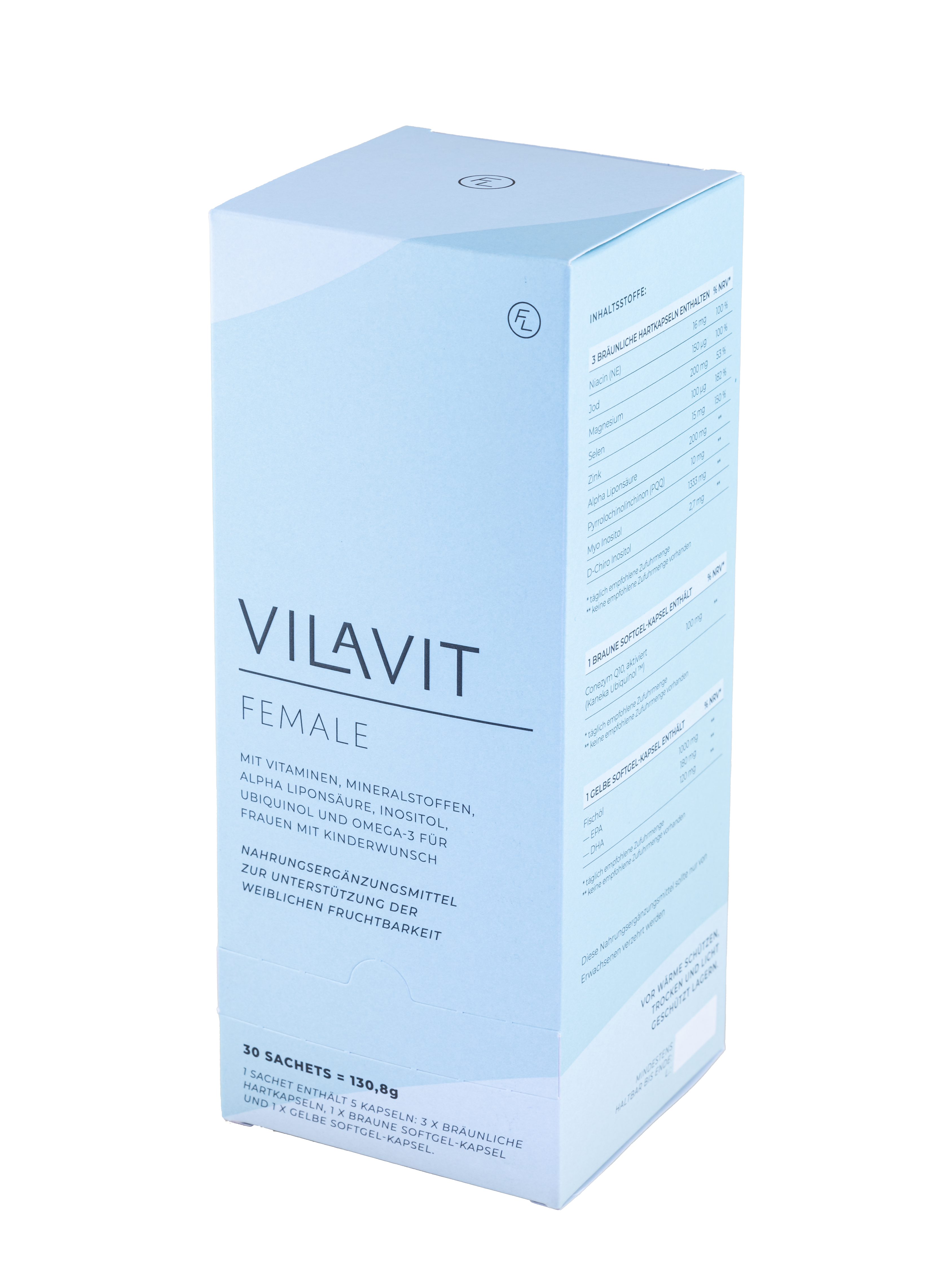Key Points at a Glance
- Mitochondria play a key role in providing energy for egg maturation.
- Ubiquinol can support mitochondrial function.
- Antioxidants like alpha-lipoic acid, selenium, and NAC reduce oxidative stress and improve embryo implantation.
- Omega-3 fatty acids (DHA and EPA) help maintain egg quality, especially in advanced reproductive age.
- Eggs can be successfully frozen and thawed without a significant decrease in fertilization rates.
What Makes a Healthy Egg?
A healthy egg has a complete set of chromosomes (a euploid cell), which is essential for its normal function and development. It should be capable of being fertilized, developing into a high-quality embryo, and successfully implanting in the uterus.
How Is Egg Quality Assessed?
Unlike embryos, there is no direct method to assess the quality of eggs. In IVF treatments, the shape of the egg can be examined under a microscope, but this does not reveal genetic abnormalities.
The best method for evaluation is Preimplantation Genetic Diagnosis (PGD) of embryos, where the quality of sperm also plays a role.
How Does an Egg Develop?
Eggs mature in the ovaries within the follicles. This maturation process requires a lot of energy, which is provided by the mitochondria. As we age, both eggs and mitochondria can accumulate errors in their DNA (mitochondrial dysfunction), leading to energy problems and faulty cell division. This can affect the chromosome count in the egg and increase the risk of genetic disorders in the embryo. Mutations can occur due to aging or naturally, but they can also be influenced by lifestyle factors.
What Influences Egg Quality?
The often age-related decline in egg quality is likely associated with decreased mitochondrial function in the eggs and increased oxidative stress within the cell (Rodríguez-Varela et al, 2021).
How Can I Improve Egg Quality?
Mitochondria play a crucial role in the maturation of eggs. Coenzyme Q10 is an essential component of these mitochondria and supports their function. Adequate levels of Coenzyme Q10 can help improve energy production in mitochondria, especially when natural levels decline due to aging or stress. Additionally, Coenzyme Q10 acts as an antioxidant, protecting cells from damage.
Studies have shown that the concentration of Coenzyme Q10 in follicular fluid decreases with age. Low levels of Coenzyme Q10 may be associated with chromosomal abnormalities in eggs. A 2018 study indicated that Coenzyme Q10 supplementation improves ovarian response to stimulation and can enhance embryo quality in women under 35 years with low ovarian reserve (Xu et al., 2018).
It is crucial to use the bioavailable form of Coenzyme Q10 known as Ubiquinol. Ubiquinol is more effective than Ubiquinone in energy production as it directly participates in the electron transport chain in mitochondria. This form of Coenzyme Q10 is biologically active and can immediately provide energy. In contrast, Ubiquinone must first be converted into Ubiquinol before it can fulfill its function (Langsjoen et al, 2014).
Folic Acid for More Mature Eggs
Folic acid plays a crucial role in cell division and development, making it an essential nutrient for egg maturation and a healthy pregnancy. Adequate folic acid levels before and during pregnancy help prevent neural tube defects in the embryo and support the healthy development of the placenta. A study found that women who took folic acid supplements had better egg quality and more mature eggs than women who did not receive folic acid (Gaskins et al., 2018).
Zinc for DNA Synthesis
Zinc is an essential trace element involved in many enzymatic reactions in the body, including DNA synthesis and cell division. It plays a crucial role in egg maturation and ovulation. Zinc deficiency can lead to reduced egg quality and an increased risk of miscarriage. Studies suggest that adequate zinc intake is essential for egg maturation and its ability to be fertilized. Zinc deficiency, whether due to diet or chelation, can impair egg maturation and reduce its quality (Garner et al., 2021).
Omega-3 Fatty Acids for Healthy Embryonal Development
Omega-3 fatty acids, particularly DHA (Docosahexaenoic acid) and EPA (Eicosapentaenoic acid), are important components of cell membranes and play a role in regulating inflammation and hormones. They are vital for egg maturation, embryo implantation, and healthy fetal development. Studies suggest that omega-3 fatty acids in the diet can protect egg quality from age-related decline, thus increasing the chances of a successful pregnancy and healthy children for women of advanced reproductive age (Nehra et al., 2017).
Vitamin D Reduces the Risk of Miscarriage
Vitamin D plays an important role in calcium absorption and bone metabolism, but it also affects female fertility. Adequate vitamin D levels during egg maturation in follicular fluid promote the development of high-quality embryos and increase the likelihood of a successful pregnancy and birth. Conversely, low vitamin D levels in the blood can increase the risk of miscarriage (Ciepiela et al., 2018).
Antioxidants and Micronutrients for Cellular Health
Cell division, especially in eggs, is a complex process influenced by many factors, including oxidative stress. Antioxidants such as Alpha-Lipoic Acid, Selenium, and NAC can help reduce oxidative stress and thus minimize cellular damage.
Antioxidants can also increase the thickness of the uterine lining, which is crucial for the successful implantation of the embryo. For women with conditions like PCOS or endometriosis, antioxidants have improved the course of the disease (Vaskova et al, 2023).
Other Factors Influencing Egg Quality
AlcoholWomen who consume 84 grams of alcohol weekly have a 7% lower chance of becoming pregnant after IVF/ICSI treatment. For men consuming the same amount, the chance of a live birth decreases by 9% (Rao et al, 2022)
Nutrition
A balanced diet plays a crucial role in the fertility of both women and men. Consuming nutrient-rich foods that are high in vitamins, minerals, and antioxidants can improve egg and sperm quality, regulate hormone levels, and increase the chances of successful conception.
It is particularly important to avoid highly processed foods, which are often rich in unhealthy fats, sugars, and artificial additives. These can promote inflammation in the body, disrupt hormone balance, and negatively affect fertility.
Studies have shown that a diet rich in fruits, vegetables, whole grains, plant-based proteins, and healthy fats can positively impact fertility (Skoracka et al., 2021).
Healthy Sleep
Studies have shown that women with high sleep quality have better fertilization rates compared to women with poor sleep quality. Women who slept less than 7 hours per night had about 11.5% fewer mature eggs identified (Rao et al, 2022).
Endocrine Disruptors
Hormone-disrupting substances, or endocrine disruptors, are chemicals that impair egg quality by disturbing hormonal balance in the body. Examples of endocrine disruptors include certain pesticides and industrial chemicals like Bisphenol A (BPA).
Summary: Improving Egg Quality with Ubiquinol (Coenzyme Q10) and Micronutrients
Egg quality is crucial for a successful pregnancy. Supporting mitochondria with Coenzyme Q10 in the form of Ubiquinol can be beneficial, as it optimizes cellular energy production. Antioxidants like Alpha-Lipoic Acid, Selenium, and NAC are also important because they reduce oxidative stress and can improve the thickness of the uterine lining. Additionally, avoiding excessive alcohol, ensuring good sleep quality, and minimizing exposure to hormone-disrupting substances can help protect egg quality and increase the chances of a successful pregnancy.
FAQ
Does freezing eggs lead to lower egg quality?
A study of over 30,000 eggs collected over 10 years by Melbourne IVF shows that freezing and later thawing eggs results in survival rates of 92%, with fertilization rates around 65%. This fertilization rate is comparable to that of fresh eggs.
Does Anti-Müllerian Hormone (AMH) measure egg quality?
Anti-Müllerian Hormone (AMH) is a useful marker for assessing ovarian reserve but does not directly measure egg quality. Instead, AMH levels provide insight into egg reserve, or the number of follicles in the ovaries. Normal AMH levels typically range between 0.7 and 3.5 ng/ml. Levels below 0.7 ng/ml indicate reduced ovarian reserve, which can affect fertility but does not necessarily impact egg quality.
Can Cordyceps improve egg quality?
Although Cordyceps is valued in traditional medicine for its potential health benefits, current scientific studies do not provide clear evidence of a positive impact on human fertility. Most research focuses on animal models, and there is a lack of definitive data to translate these findings to humans.
References
- Rodríguez-Varela C, Labarta E. Does Coenzyme Q10 Supplementation Improve Human Oocyte Quality? Int J Mol Sci. 2021
- Bentov Y, Hannam T, Jurisicova A, Esfandiari N, Casper RF. Coenzyme Q10 Supplementation and Oocyte Aneuploidy in Women Undergoing IVF-ICSI Treatment. Clin Med Insights Reprod Health. 2014
- Langsjoen PH, Langsjoen AM. Comparison study of plasma coenzyme Q10 levels in healthy subjects supplemented with ubiquinol versus ubiquinone. Clin Pharmacol Drug Dev. 2014
- Vašková, J.; Klepcová, Z.; Špaková, I.; Urdzík, P.; Štofilová, J.; Bertková, I.; Kľoc, M.; Rabajdová, M. The Importance of Natural Antioxidants in Female Reproduction. Antioxidants 2023,
















